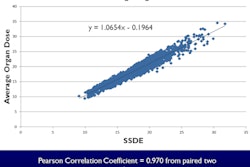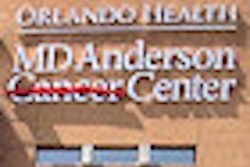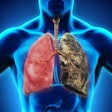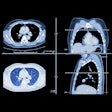Physicians rarely communicated the risks of CT scans to patients before ordering the exams in a population of older male patients at a U.S. Department of Veterans Affairs (VA) hospital, according to survey results published on March 4 in a research letter in JAMA Internal Medicine.
The results also suggest that clinicians rarely involve patients in the decision to undergo a scan. Nearly two-thirds of patients who were surveyed felt that the decision to undergo the scan was mostly the physician's, and only about one-third said their provider initiated a discussion about the risks of imaging with ionizing radiation, wrote Dr. Tanner Caverly and colleagues from the University of Colorado and the VA Medical Center (JAMA Intern Med, March 4, 2013).
The free-response survey was given in December 2012 to 286 consecutive outpatients who underwent CT at the Denver VA Medical Center. The survey probed four areas: patient demographics, the presence or absence of risk communication, patient preference for more information, and knowledge of the potential harms of CT exams.
Patients were divided into two groups: those who knew that radiation from CT scans exceeded that of radiography, and those who didn't. Two additional groups included patients who reported having a discussion about the risks and benefits of CT and those who reported no discussions.
Fully 62% of the 271 respondents said that the final decision to undergo CT was the physician's, and just over one-third (35%) said they had discussed the potential risks of CT with their physician. In fact, only 17% reported having discussed the potential risks and benefits of the exam and shared the decision with their doctor as to whether it should be ordered, Caverly and colleagues wrote.
| Knowledge of CT risks | |
| Knowledge | % of respondents |
| Ranked CT as having no radiation exposure | 5% |
| Ranked CT as having higher radiation than chest x-ray | 37% |
| Don't know risks of CT | 24% |
| Believe CT is low-risk | 24% |
| Believe benefits of CT outweigh the risks | 4% |
| Believe cancer is a potential harm of CT | 5% |
| Believe reactions to iodinated contrast are possible | 3% |
"Our study indicates that most decisions to undergo outpatient CT are made by physicians and risk communication is infrequent," the authors wrote. "The risk communication that had taken place had limited impact: Respondents who recalled discussing the risks and benefits of CT did not have better knowledge."
Only a small percentage of patients could cite the potential risks of radiation from CT exams, and no respondents cited as a potential harm the effects of incidental findings, the group noted. Because the potential harms from CT scans have resulted in calls for mandatory informed consent, the survey included specific questions about radiation. Unfortunately, less than half knew that CT resulted in higher radiation exposure than radiography, according to Caverly and colleagues.
"We believe it is problematic when the potential harms of CT are not conveyed," they wrote. "Ignoring downsides can lead to an imbalanced decision in favor of overuse."




















